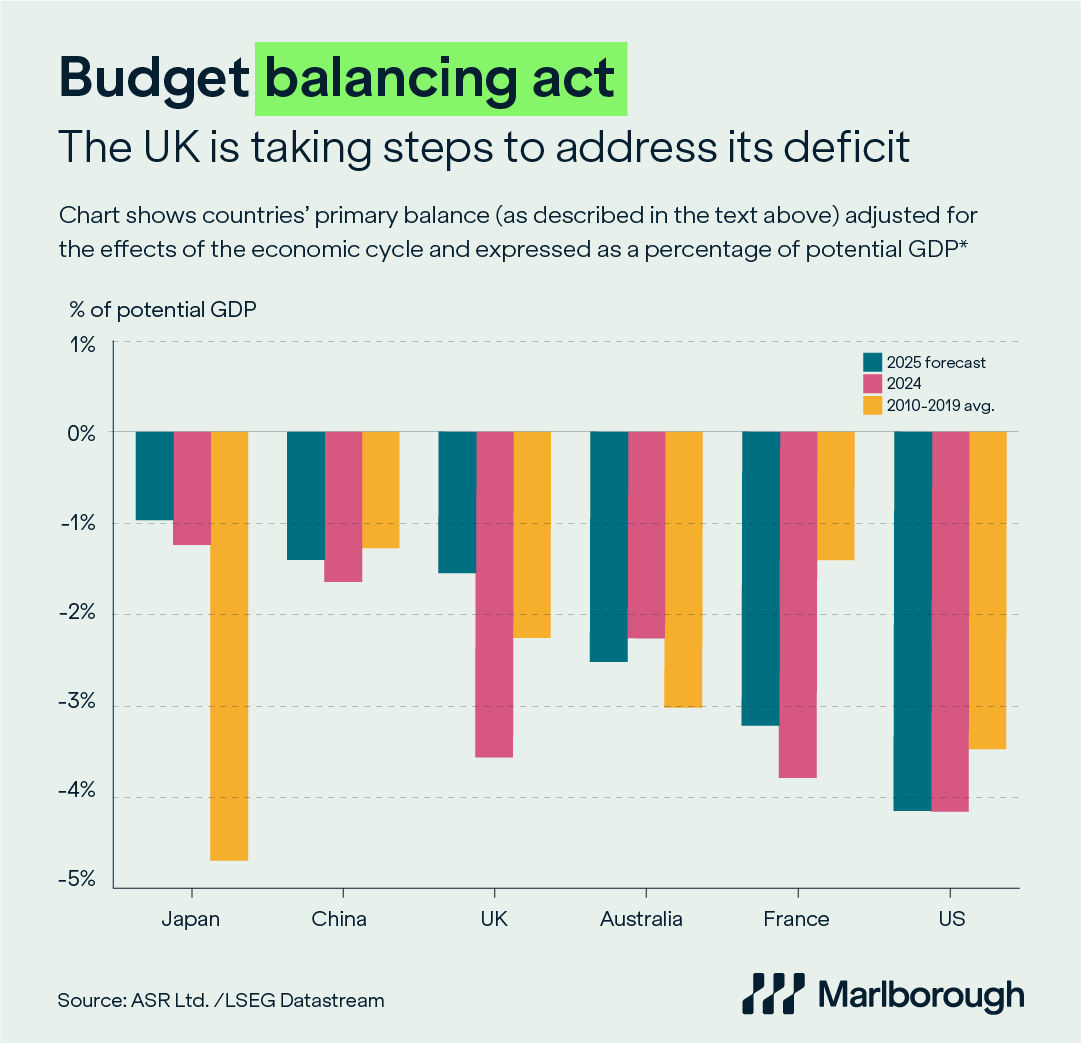Chart of the Week: Fearless – fear, football and the UK Budget

For professionals only.
Capital at risk.
Welcome to this week's 'Chart of the Week', where we share key insights to help keep you informed on what's happening in the markets.
I’ve been travelling for client events, rubbing shoulders with retirees on the Portuguese coast and shoppers on Buchanan Street in Glasgow. Travel always gives you a bit of perspective. And whether you are speaking to people in Portugal or Scotland, one thing is clear. Everyone has something they are worried about. Fear is everywhere, just in different forms.
For me, travel also gives me precious time to read. My chosen book at the moment is High Performance: Lessons from the Best on Becoming Your Best by Jake Humphrey and Professor Damian Hughes. One section really stands out. It describes how the England football team was transformed under Gareth Southgate. This was not simply because of tactics or fitness. It was because they introduced what was effectively a fear coach.
The idea was simple. Teams do not underperform because they lack talent. They underperform when fear takes over.
Southgate rebuilt the culture so that players were not paralysed by the fear of failure. Instead, fear became something acknowledged, managed and put to use. That shift, from fear as a threat to fear as a guide, changed the mindset of the team. As a result, England became a very different team, once fear was addressed directly and players were given the psychological space to perform.
There is a lesson in this for investors today. At the moment, one of the big fears circulating is the UK Budget. And understandably so. Speculation about tax increases and spending cuts stirs up strong emotions.
However, here is our view. We do not see much value in speculating. Budgets are political documents. There are often changes right up until the last minute. Speculation had been rife that Chancellor Rachel Reeves was planning to increase Income Tax. Only for reports to emerge on Friday that these plans have now been dropped. This suggests the Chancellor may take more of a patchwork quilt approach to raising revenue – with a mix of many smaller changes designed to boost government finances.
The broader point, and the link back to fear coaching, is that things are rarely as bad as they seem. When we compare the UK with other major economies, it has already delivered significant cost-cutting. The worst-case narratives often overlook the progress that has already been made.
The chart below is based on the UK government’s ‘primary balance’ – revenues minus spending (except interest payments). This has then been adjusted to take into account the effect of the economic cycle and expressed as a percentage of potential gross domestic product (GDP)*.
It shows the UK appears to be making progress, with the forecast picture for this year looking more favourable than last year and compared to the average for 2010 to 2019. On this measure, the UK’s situation also looks more positive than a number of other leading global economies.

Key Takeaway
Once we see the actual Budget rather than rumours, we will provide a full breakdown of the implications for markets and UK clients. Until then, staying grounded and avoiding decisions driven by fear remains the most sensible approach.
*Potential GDP is an estimate of the maximum output a country’s economy could achieve without driving up inflation.
Find out more about our multi-asset solution
This article is provided for general information purposes only and should not be construed as personal financial advice to invest in any fund or product. These are the investment manager’s views at the time of writing and should not be construed as investment advice. The opinions expressed are correct at time of writing and may be subject to change. Capital is at risk. The value and income from investments can go down as well as up and are not guaranteed. An investor may get back significantly less than they invest. Past performance is not a reliable indicator of current or future performance and should not be the sole factor considered when selecting funds.




